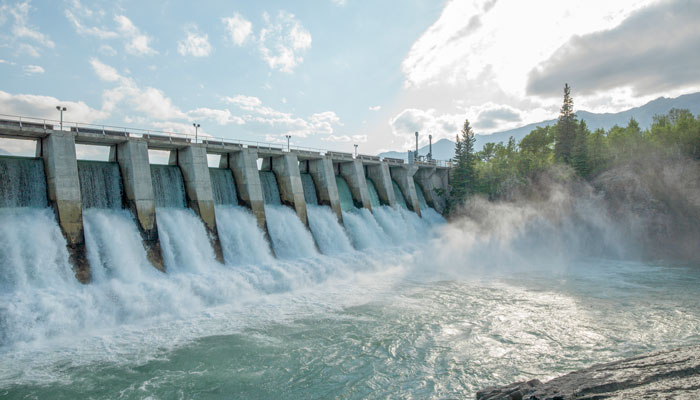08.07.2024
Lack of engineers and ineffective workforce management contributing to ageing water infrastructure issues
 A lack of engineers and poor workforce management will only exacerbate the problem of the rapidly ageing infrastructure in the UK water industry. That’s according to Water by Murray, part of Murray McIntosh.
A lack of engineers and poor workforce management will only exacerbate the problem of the rapidly ageing infrastructure in the UK water industry. That’s according to Water by Murray, part of Murray McIntosh. According to recent reports, Thames Water has revealed to Ofwat that it has £19bn in assets that are either in “poor condition” or “no longer capable of reliably performing their function,” which could “pose a risk to public safety, water supply and the environment.” In response to these warnings, the specialist recruiter has suggested that many of the issues affecting the sector could be tackled by bolstering engineering workforces and by managing existing resources more effectively.
Water by Murray’s recent ‘Water Industry Labour Report’, which was based on a survey of nearly 4,000 specialist engineers, found that the biggest issue impacting the sector was skills & recruitment, listed by 26% of respondents. However, perhaps more concerning is that 70% of the existing engineering workforce plans to move to other industries in the coming years.
Ageing infrastructure was cited as the second greatest issue facing the sector in the Water Industry Labour Report. Water by Murray has warned that a lack of engineers combined with ineffective workforce management will only exacerbate the problem, making it critical that more sustainable sources of talent are created.
Adam Cave, Managing Director and Founder of Water by Murray, part of Murray McIntosh, commented on the findings.
“To anyone closely following the plight of the water industry, Thames Water’s warning should come as no surprise. The sector is facing myriad challenges at the moment, however many of these could be solved by focusing on sourcing more engineers and building the size and capability of the workforce. Not only that, organisations also need to consider the way they engage specialists and look to leverage the value of the contingent workforce more effectively. Water is one of the UK’s truly critical industries, however with almost three quarters of engineers considering roles in other sectors and a looming retirement cliff, employers could face significant challenges resourcing major projects in the future.”
“The only way of maintaining these assets is by hiring the right engineers, and unless that foundational issue is tackled, and fast, then we will see more infrastructure related challenges appearing in the coming years. The types of problems facing not just Thames Water, but firms across the entire sector, are related to disintegrating water and sewage pipes and outdated technology and reservoirs, built for much smaller populations than we have now. Without engineers, these problems won’t be fixed, so employers need to do more to not only source engineering skills, but also to develop and retain the professionals they already have on their books.”
Posted by:
FMJ
0 comment(s)
Add your comment

Department/function
Region
Employment Type
- Catering 1
- Construction 39
- Contracts, Projects, Bids 19
- Energy Management 103
- Engineering, Maintenance 623
- Estates, Property 36
- Events 1
- Facilities Management (main) 278
- Front of House 1
- Hard Services 54
- Health & Safety 1
- HVAC 218
- Management 2
- M&E 224
- Operations 81
- Procurement 19
- Sales & Marketing 4
- Soft Services 3
- Sustainability 1


